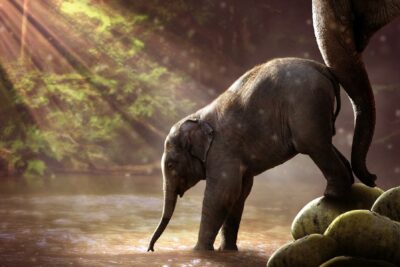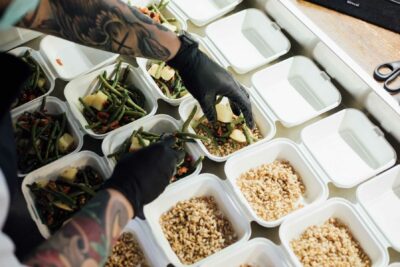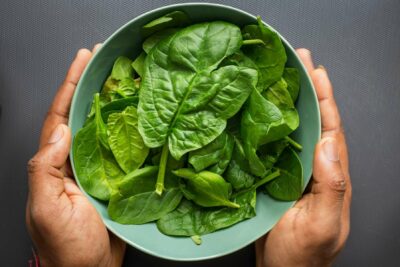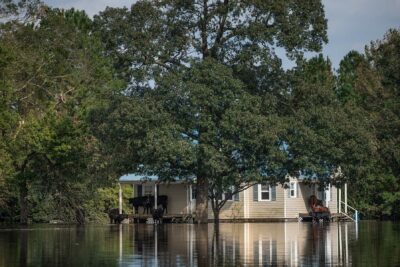(And What We Need To Do For Them in Return)
It may have been humans who caused the environmental crisis, but there are many non-human animals who can help us find our way back to a healthy, thriving planet. Here are five climate-hero species, plus our top tips on how we can help them to help us all.
Bats as Barometers
Bats are important barometers of the change in the climate. One study of migratory bats found that a significant proportion were overwintering instead of leaving for warmer climes, and those who did leave tended to do so sooner. This indicates that the change in the climate is affecting insects, the bats’ main food source. There are many other bellwether species besides bats, including corals and pikas. Together they reveal the rate of climate change and sound the alarm for action.
How Can We Help Bats?
- We can make our yards and outdoor spaces bat-friendly by installing a pond, letting wild plants thrive, avoiding the use of pesticides, and installing bat boxes.
- We can support campaigns that protect their habitats both locally and nationally.
- We can buy organic foods if they are available and affordable. Many species of bats (and birds) rely on insects so let’s not kill them all with chemicals.
Just when you thought you couldn’t love bats more…
Sea Otters Are Forest Guardians
Aquatic species play an immense role in the fight against climate breakdown, and sea otters are considered a keystone species. That means they help define their ecosystem and without them, it would collapse or change dramatically. Sea otters are guardians of the kelp forests. They foster their growth and keep in check the kelp’s main consumers, sea urchins. Kelp forests can sequester up to 20 times more carbon per acre than land forests, and those that are guarded by sea otters can sequester 12 times more carbon from the environment.
How Can We Help Sea Otters?
- The fishing industry is one of the main threats to sea otters (and all other marine mammals) who get caught in the vast nets and drown. The best way to help sea otters is to stop buying fish.
- The slurry run-off from animal farms is a significant ocean polluter, which kills sea otters when they ingest contaminated shellfish. We can help end this pollution by withdrawing our support from animal farming, and buying plant-based foods instead.
- Oil spills are another serious danger to sea otters. They can die from ingesting the oil and, if they get covered in it, they may freeze to death. To help them (and every other species on this planet) we can reduce our reliance on fossil fuels, while lobbying for governmental action on accelerating renewables.
Your daily dose of awww.
Whales Make Plankton Grow
Just as sea otters help kelp to thrive, whales are essential for the success of plankton. Whales have a ‘multiplier effect’ and increase plankton production wherever they go. Not only is their waste the perfect food to help plankton grow but whales disperse the nutrients it contains when they migrate or come to the surface, and that helps plankton to spread. Plus, as whales are so huge, they sequester large amounts of carbon in their bodies. If they die naturally in the ocean, they take that carbon to the ocean floor and lock it away. For these reasons, one report found that, in terms of protecting the climate, one whale is worth a thousand trees, and that protecting large aquatic species is more important than planting forests.
How Can We Help Whales?
- Entanglement in fishing lines and nets is a primary threat to whales. Around 300,000 whales and dolphins are killed every year as “bycatch” by the fishing industry, making this the leading cause of death for these animals. The best thing we can do for whales is to stop eating fish.
- We can avoid contributing to ocean pollution by using eco-friendly products, and avoiding single-use plastics and pesticides. If you live near the coast, how about joining a beach clean-up?
- Dead zones in the ocean are growing in number and size. These are areas where oxygen is so depleted, no animal can survive. One of the leading causes is the run-off of manure from animal farms. Choosing plant-based foods helps protect the oceans, the whales, and all other marine inhabitants.
Enjoy these four minutes of total bliss.
Primates Spread Seeds
Many primates, including some of our closest relatives, are fruit-eaters. They either suck and bite the fleshy pulp and discard the pips and stones, or those seeds pass through their digestive tract. Either way, primates are important dispersers of seeds which means they plant fruit trees and ensure forests grow. Their impact is so significant that many primates are considered keystone species. Since these primate-planted forests absorb vast amounts of carbon, we can see primates as a key ally in the fight against climate breakdown.
How Can We Help Primates?
- The expansion of land for animal agriculture is “the leading driver of deforestation and biodiversity loss.” Beef is the biggest culprit by far but all animal products require too much land which is taken from nature. To reduce deforestation, we should choose plant-based foods, just like our primate cousins.
- Mining is another major cause of deforestation which negatively impacts primate populations. If you buy gold jewelry, choose vintage to reduce the impact on forests. Consider updating your tech less frequently and buying second-hand wherever possible.
- Support reputable primate conservation charities like The Jane Goodall Institute, Wild Futures, and IPPL. They help educate, protect habitats, and rehabilitate animals.
Fall in love with capuchins.
Elephants Help Reflect Solar Radiation
Large mammals like elephants play multiple important roles in the fight against climate breakdown. As they graze, they disperse seeds and fertilize the soil which helps sequester carbon in the earth, roots, and plants themselves. By browsing on woody vegetation, they also create firebreaks that slow the spread of wildfires, and they even help create habitats that reflect more solar radiation into the atmosphere, thereby cooling the Earth’s surface.
How Can We Help Elephants?
- Hunters pay large sums of money to kill iconic species for reasons we will never understand. We can support campaigns that seek to end trophy hunting.
- Poachers are among the biggest threats to elephants and kill them to take their body parts, most commonly their ivory tusks. Support anti-poaching teams, like The Black Mambas, the all-women ranger unit in South Africa, and Akashinga, the world’s first all-women, plant-based, armed anti-poaching unit in Zimbabwe.
- Once again, loss of habitat is a key problem for elephants, and what we farm and eat is a driving factor. If we all ate plant-based foods, we could reduce global farmland by 75 percent, and that could return to nature.
Watch these extraordinary celebrations as a new-born calf is welcomed to the elephant herd.



